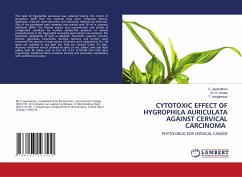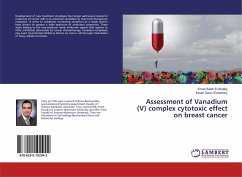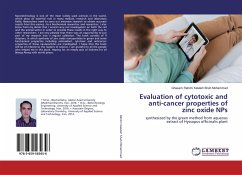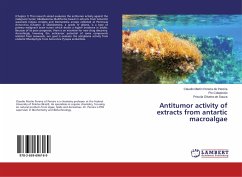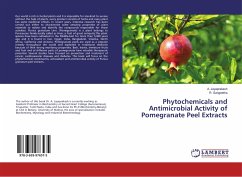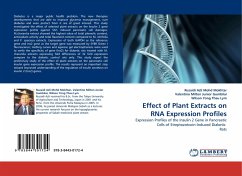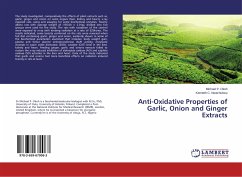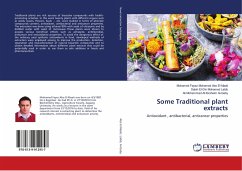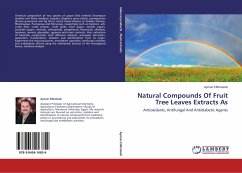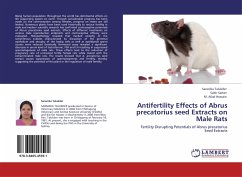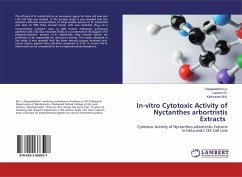
In-vitro Cytotoxic Activity of Nyctanthes arbortristis Extracts
Cytotoxic Activity of Nyctanthes arbortristis Extracts in HeLa and L132 Cell Line
Versandkostenfrei!
Versandfertig in 6-10 Tagen
27,99 €
inkl. MwSt.

PAYBACK Punkte
14 °P sammeln!
The efficacy of N. arbortristis as an anticancer agent for HeLa cell lines and L132 cell lines was studied. In the present study, it was revealed that the minimum effective concentration of ethyl acetate extract of N. arbortristis was toxic to 50% HeLa cervical cancer cells was recorded (IC50) at a concentration 4.7µg/ml were as 50% human embryonic pulmonary epithelial cells L132 was recorded (IC50) at a concentration 56.35µg/ml. The phytoconstituents present in N. arbortristis ethyl acetate extract are predicted to be responsible for anticancer activity. The results obtained in the study, i...
The efficacy of N. arbortristis as an anticancer agent for HeLa cell lines and L132 cell lines was studied. In the present study, it was revealed that the minimum effective concentration of ethyl acetate extract of N. arbortristis was toxic to 50% HeLa cervical cancer cells was recorded (IC50) at a concentration 4.7µg/ml were as 50% human embryonic pulmonary epithelial cells L132 was recorded (IC50) at a concentration 56.35µg/ml. The phytoconstituents present in N. arbortristis ethyl acetate extract are predicted to be responsible for anticancer activity. The results obtained in the study, it was revealed that the plant extracts possess increased anti-cancer nature against HeLa cell lines compared to L132. In future the N. arbortristis can be considered to be an important pharmacophore.



